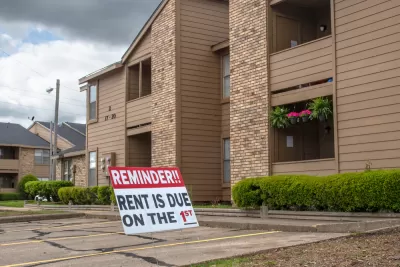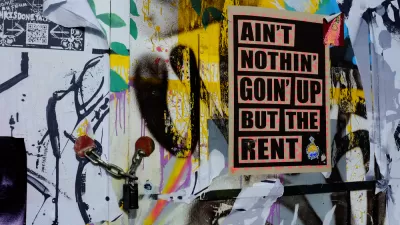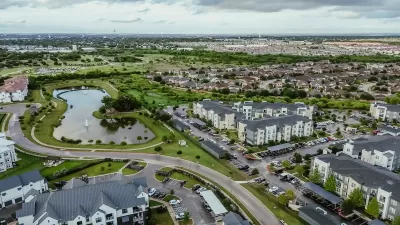Renters in smaller multi-family buildings and single-family homes are faced with larger economic challenges during the pandemic, according to new analysis by researchers at the Joint Center for Housing Studies of Harvard University.

As noted in an article by Whitney Airgood-Obrycki and Alexander Hermann, tracking the health of renters and the rental market has been challenging during the pandemic, as available data tends to certains types of rental buildings. Data from the National Multifamily Housing Coalition, for instance, skews toward buildings with at least five units. The work of Airgood-Obrycki and Hermann aims to fill some of that gap for a better understanding of the risks facing renters in smaller buildings.
The resulting analysis reports dire risks. "Renters living in single-family homes and smaller multifamily buildings, along with the owners of those properties, are more likely to be negatively affected by the COVID-19 economic downturn," according to Airgood-Obrycki and Hermann.
More specifically, "Over half of renters with at-risk wages due to the pandemic live in single-family and small multifamily rentals with 2–4 units," write Airgood-Obrycki and Hermann, who further estimate that "nearly 20 percent of renters in small multifamily apartments may have difficulty paying full rent if at-risk wages are lost, compared to 12 percent of renters living in larger apartments."
The analysis by Airgood-Obrycki and Hermann reveals a disparity in the common understanding of the effects of the coronavirus, which has tended to concentrate on the perceived public health risks of large residential buildings, like in this article by Liam Dillon for the Los Angeles Times, about the pandemic experience in Park Le Brea, the largest apartment complex in California.
FULL STORY: COVID-19 RENT SHORTFALLS IN SMALL BUILDINGS

Maui's Vacation Rental Debate Turns Ugly
Verbal attacks, misinformation campaigns and fistfights plague a high-stakes debate to convert thousands of vacation rentals into long-term housing.

Planetizen Federal Action Tracker
A weekly monitor of how Trump’s orders and actions are impacting planners and planning in America.

In Urban Planning, AI Prompting Could be the New Design Thinking
Creativity has long been key to great urban design. What if we see AI as our new creative partner?

King County Supportive Housing Program Offers Hope for Unhoused Residents
The county is taking a ‘Housing First’ approach that prioritizes getting people into housing, then offering wraparound supportive services.

Researchers Use AI to Get Clearer Picture of US Housing
Analysts are using artificial intelligence to supercharge their research by allowing them to comb through data faster. Though these AI tools can be error prone, they save time and housing researchers are optimistic about the future.

Making Shared Micromobility More Inclusive
Cities and shared mobility system operators can do more to include people with disabilities in planning and operations, per a new report.
Urban Design for Planners 1: Software Tools
This six-course series explores essential urban design concepts using open source software and equips planners with the tools they need to participate fully in the urban design process.
Planning for Universal Design
Learn the tools for implementing Universal Design in planning regulations.
planning NEXT
Appalachian Highlands Housing Partners
Mpact (founded as Rail~Volution)
City of Camden Redevelopment Agency
City of Astoria
City of Portland
City of Laramie





























